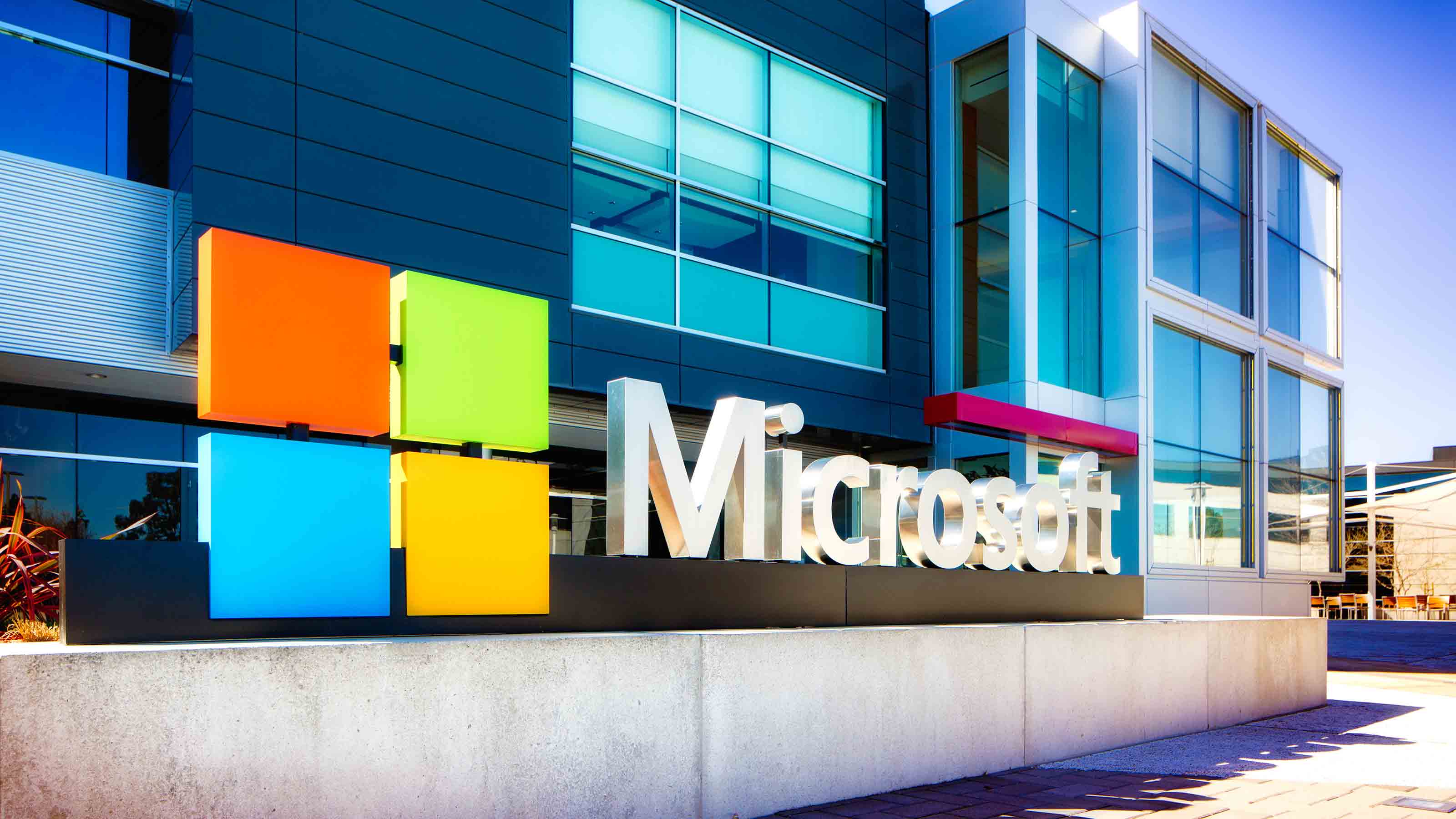10 Best Cloud Stocks to Buy for Rapid Growth
The cloud is evolving, and the industry's investments are too. Here are 10 high-growth cloud stocks to buy to leverage this technology in your favor.


Profit and prosper with the best of Kiplinger's advice on investing, taxes, retirement, personal finance and much more. Delivered daily. Enter your email in the box and click Sign Me Up.
You are now subscribed
Your newsletter sign-up was successful
Want to add more newsletters?

Delivered daily
Kiplinger Today
Profit and prosper with the best of Kiplinger's advice on investing, taxes, retirement, personal finance and much more delivered daily. Smart money moves start here.

Sent five days a week
Kiplinger A Step Ahead
Get practical help to make better financial decisions in your everyday life, from spending to savings on top deals.

Delivered daily
Kiplinger Closing Bell
Get today's biggest financial and investing headlines delivered to your inbox every day the U.S. stock market is open.

Sent twice a week
Kiplinger Adviser Intel
Financial pros across the country share best practices and fresh tactics to preserve and grow your wealth.

Delivered weekly
Kiplinger Tax Tips
Trim your federal and state tax bills with practical tax-planning and tax-cutting strategies.

Sent twice a week
Kiplinger Retirement Tips
Your twice-a-week guide to planning and enjoying a financially secure and richly rewarding retirement

Sent bimonthly.
Kiplinger Adviser Angle
Insights for advisers, wealth managers and other financial professionals.

Sent twice a week
Kiplinger Investing Weekly
Your twice-a-week roundup of promising stocks, funds, companies and industries you should consider, ones you should avoid, and why.

Sent weekly for six weeks
Kiplinger Invest for Retirement
Your step-by-step six-part series on how to invest for retirement, from devising a successful strategy to exactly which investments to choose.
Cloud computing – and thus investing in cloud stocks – is becoming more sophisticated by the year.
More than a decade ago, the "cloud" mostly was just basic infrastructure. Then it eventually became the platforms on which companies built applications and software used directly by workers.
But increasingly, applications are written for the cloud, that live entirely in the cloud, and/or even serve the cloud. Some companies – think Microsoft (MSFT) and its Office productivity suite – use cloud-based business models for older applications. Others assure that the speed and reliability of the cloud is maintained, from hyperscale data centers to phones, TVs and PCs.
This is a high-growth industry that's being bid up to the … well, clouds. Valuations are sky-high, and pullbacks across the space certainly are possible. But the technology has staying power; companies won't quickly ditch the benefits they're capturing from cloud apps after offices re-open, if they ditch them at all. Thus, many cloud stocks' opportunities should extend well into the future.
Here are 10 of the best cloud stocks to buy. While you might be able to jump in at better prices down the road, each of these companies represents a promising business that many analysts think has long-term legs.
Data is as of July 27.

Crowdstrike Holdings
- Market value: $22.4 billion
Crowdstrike (CRWD, $103.60) illustrates how the cloud has transformed the computer security industry.
Crowdstrike provides "endpoint" security for PCs and other devices. Its Falcon platform includes 11 different modules for maintaining security against the most sophisticated attacks from state-based actors. Think of it as a Norton Security or McAfee for the cloud era.
Crowdstrike's approach has put CRWD on several analysts' lists of cloud stocks to buy.
It has caught the eye of Stifel's Gur Talpaz (Buy) because it has been able to double revenues each of the past four years – and could do so again this year, even amid the pandemic. Talpaz recently increased his 2021 revenue estimate to $761 million. "With heightened fragmentation across workloads, the opportunity to scale into arenas like cloud (virtual machines/containers), IoT, and mobile drastically increases the potential size of deployments," Talpaz writes.
Investors are willing to pay above analysts' price targets because it's "a clear winner in a winning sector," says Victoria Greene, founding partner at G Squared Private Wealth in College Station, Texas. With 25% to 30% of workers doing at least some work from home in 2021, against 2.6% before the virus, Greene said Crowdstrike can now sell company-wide deployments and upsell profitable consulting services.
First-quarter earnings handily beat analyst estimates, says Gregg Moskowitz (Buy), software research analyst at Mizuho Securities. The company added 830 customers during the quarter, and 45% of all customers have adopted CRWD's high-end Discover module, he said.
Brad Zelnick (Neutral), a managing director at Credit Suisse, writes that Crowdstrike's "cloud native security" approach will continue to displace vendors such as Symantec (SYMC), which produces Norton Security.

DataDog
- Market value: $26.3 billion
DataDog (DDOG, $87.83), like Crowdstrike, illustrates how the cloud is creating new opportunities in what seem like old niches. In this case, the niche is monitoring the performance of applications.
Splunk (SPLK) and Elastic (ESTC) pioneered this business in the 2000s. As with Crowdstrike, DataDog is gaining share because it's cloud-native. It works with applications and customers using Amazon.com's (AMZN) Amazon Web Services, Microsoft's Azure, the Google Cloud Platform, International Business Machines' (IBM) Red Hat OpenShift, and open-source OpenStack.
DataDog has been innovating faster than its competitors, writes investment advisor Nicholas Rossolillo of Spokane, Washington. The software was completely rewritten in 2017. And before going public in 2019, DataDog acquired log visualization company Logmatic, and testing platform Madumbo.
This has helped DDOG shares surge in 2020, with 132% gains and climbing.
In May, DataDog reported 87% year-over-year growth in first-quarter revenues and said the number of customers spending more than $100,000 apiece doubled to 960. DataDog now features 400 third-party integrations for software with security, program development and operations.
FBN Securities analyst Shebly Seyrafi (Outperform, equivalent of Buy) says DataDog is a "beneficiary of the movement of workloads to the cloud." Healthy average revenue per user (ARPU), pricing power and strong international revenue growth are all tailwinds for this cloud stock, he says.

DocuSign
- Market value: $36.0 billion
DocuSign (DOCU, $196.27) is among the more popular and well-known cloud stocks. This company provides the ability to electronically sign and manage financial documents, making other online applications much more powerful by eliminating the need for paper.
The company was founded in 2003 and spent its earliest years primarily serving the real estate industry. In addition to taking signatures, its technology maintains a record of where documents have gone and what was done with them.
Since then, DocuSign's usefulness has expanded rapidly, with most of the Fortune 500 now boasting the ability to use its software. Revenues exploded by 39% during the most recent quarter, with growth rolling on throughout the pandemic as working from home makes it more difficult to get physical signatures. DOCU's usefulness has sparked a nearly 165% rally so far in 2020.
Marina Vaamonde, founder of HouseCashin.com and a full-time investor, speaks to the utility of DocuSign's offering. "I can truly say that without DocuSign, my cost of doing business and liability would increase tremendously," she says, adding that its cloud-based solution "is set to capitalize on the current market conditions."
DocuSign revenues grew 39% in 2019, and growth is continuing in the pandemic, as the need for working at home makes it harder to get physical signatures. This has helped the stock to a 133% gain for the first half of 2020, though DOCU shares now trade at a wild 240 times forward-looking earnings estimates.
Despite its valuation, William Blair maintains an Outperform rating on shares. The firm's analysts hosted CEO Dan Springer at a recent investment conference, where he said the total addressable market for the company's service is now $50 billion, half of that in e-signatures. While international revenue grew 46% last year, they still represent just 18% of the total. The company now has teams in eight countries, pursuing legal requirements in civil law nation by nation.
Deutsche Bank's Taylor McGinnis (Buy) believes the company can continue to expand its sales at more than 30% each year. Even if workers return to offices, the convenience of e-documents should keep growth high.

Fastly
- Market value: $8.3 billion
Fastly (FSLY, $80.11) is a content delivery network that ensures sure files are streamed to users with minimal delay.
Akamai Technologies (AKAI) and Limelight Networks (LLNW) are among the companies that pioneered this market in the 1990s. Nowadays, Fastly operates entirely through Application Program Interface (API) software hosted in cloud data centers. By working in software, fast-growing customers can maintain a global footprint without having to invest in remote servers.
At Fastly's core is Varnish, an open-source web application accelerator that tracks the location of users, then makes certain they're connected to the nearest server with the data they need. This makes it especially valuable for companies hosting streams or video conferences. Paths can be set to expire at any time or be purged instantly. Users see less jitter on videos, while hosts save on server bills.
And the pandemic has made Fastly one of the best-performing work-from-home (WFH) stocks at roughly 300% gains in 2020.
Most of that gain came after Fastly's Q1 report in early May, when it announced 38% growth in sales to $63 million and said that 88% of trailing 12-month revenues came from large enterprise customers. These customers spend an average of $642,000 per year with the service. Among Fastly's big customers are Shopify (SHOP) and Spotify (SPOT). Thanks to the cloud, Fastly now has operations on every continent.
What's nice is that Fastly's software allows even smaller companies to create a global footprint. This is among several factors that have made the cloud stock a darling, writes D.A. Davidson analyst Rishi Jaluria (Buy).
Daniel Milan, managing partner of wealth manager Cornerstone Financial Services, says that while FSLY isn't profitable yet, it's well positioned for long-term growth. When Fastly customers such as Shopify sign alliances with companies like Walmart (WMT), Fastly benefits. "Over the next year, we suspect Fastly will be able to gain an even larger share of the vast content delivery network market, which will be worth an estimated $22 billion by 2024," Milan adds.

Microsoft
- Market value: $1.54 trillion
Microsoft (MSFT, $203.85) offers a way for even the most conservative of investors to join the rush to cloud applications.
The company's decision in 2014 to commit to the cloud and make Satya Nadella its CEO has delivered shareholders a 36% average annual gain over the past five years. The dividend has risen 64%, from 31 cents per quarter to 51. Microsoft is now the second most-valuable company in the world, trailing only Apple (AAPL).
The secret to this is the Azure cloud, which represented most of its $16.9 billion capital budget in 2019. Of course, Microsoft has the financial wherewithal to do this – it boasted cash and short-term investments worth more than $137 billion at the end of March. It also grew revenues 13% year-over-year in the June quarter, to $38 billion, and earnings of $1.46 per share, while off YoY, were better than what analysts expected.
While Microsoft is usually seen as a software power, it's now one of the world's great telecommunications companies, in a way. Azure has data centers on every continent, including Africa, all linked by fiber cable. This capacity is managed to handle the local laws and regulations regarding use of customer data, creating an ever-higher barrier to entry for rivals.
Of the 29 analysts that have sounded off on MSFT over the past three months, 26 have the stock on their buy lists. Deutsche Bank's McGinnis (Buy) writes that Azure's business has become more durable during the pandemic in a note raising its 12-month price target on Microsoft stock to $215 per share.
Growth is also fueled by acquisitions, Cornerstone's Milan says. New acquisitions such as CyberX, a security company, deepen its push into new trends like the Internet of Things, in which all machines have networked intelligence built into them. Milan calls Microsoft "a sound retirement investment."

The Trade Desk
- Market value: $19.9 billion
The Trade Desk (TTD, $432.16) is not a stock trading service, despite the fitting name. It's a cloud-based platform for managing digital ad buys – whether they display on PCs, phones or TVs – from all types of media companies. CEO Jeff Green is actually leading his second startup in the space; he previously sold AdECN to Microsoft in 2007. With The Trade Desk, Green has developed a platform that not only helps agencies book ad dollars but justify their spending to clients.
Success for an ad platform involves getting new partners whose ads it can sell. In addition to online inventory, TTD carries digital ad inventory for TV networks at ViacomCBS (VIAC), Fox (FOXA) and Discovery (DISCA). Digital sales channels such as TTD can also be used by streaming services like Roku (ROKU) and Apple TV.
This year, The Trade Desk also struck a partnership with Zalora, an Asian fashion shopping site, so brands selling there can measure the sales they generate on the site from ads, and how many of their visitors can be converted into buyers.
This integration of online and offline ad buying helps TTD compete with such rivals as Alphabet's (GOOGL) Google, Criteo (CRTO) and privately held MediaMath. It also mitigates the risk of buyers pulling away from social networks such as Facebook (FB) by giving them alternatives that can be evaluated the same way.
While companies have been pulling back on ad spend throughout the pandemic, TTD delivered a 33% gain in revenues during the March quarter.
TTD, up 66% year-to-date, is among the best cloud stocks in several analysts' eyes. It's considered a "top pick" at Needham, which raised its price target in June from $370 per share to $475. In May, Pivotal Research analyst Michael Levine called TTD a buy and raised his price target.
Rosenblatt Securities analyst Mark Zgutowic also raised his price target in May but maintained a Neutral rating on the stock, concerned about earnings visibility. That should improve, however, as programmatic advertising improved in May, according to The Trade Desk managers and market rivals.
Cornerstone's Milan expects advertising growth to slow in the second half of 2020. Still, he finds The Trade Desk well-positioned as "advertisers continue their march toward digital outlets. Like radio and print before it, traditional television is being disrupted by a new medium."
Also, unlike many high-growth tech companies, The Trade Desk is profitable, and it exited the first-quarter with a solid balance sheet including $446 million in cash and equivalents – more than its long-term debt and lease obligations.

Twilio
- Market value: $35.4 billion
Twilio (TWLO, $252.86) is a communications platform-as-a-service (CPaaS) business. That means it lets developers quickly add voice, text and other services to their apps through the cloud. And it's a red-hot business – one that saw TWLO's revenues shoot 75% higher in 2019, and 57% in Q1 2020.
Twilio, which went public in mid-2016, has seen its sales exploded four-fold since then, to $1.13 billion in 2019. The company now serves more than 190,000 organizations, from startups and nonprofits to governments and Fortune 500 companies. Twilio isn't profitable because it keeps plowing more money into growth, but investors still have driven TWLO shares 157% higher in 2020.
Chief Financial Officer Khozema Shipchandler, speaking at a recent William Blair conference, announced that the company had achieved HIPAA compliance for its technology, making it available to the health care community. Telemedicine has been taking off during the pandemic, and Shipchandler believes this business will remain after the pandemic is over.
He also said Flex, the company's cloud-based company contact center, is leading many business partners to leave old technologies for the cloud entirely. Pittsburgh, for instance, kept its 311 center running during the pandemic thanks to Twilio Flex.
Canaccord Genuity analyst Michael Walkley initiated TWLO at Buy at the end of May, saying that Twilio "has proven resilient" amid the pandemic. It has established itself as the leading CPaaS brand and is successfully aiming at large enterprises that were not previously using cloud computing. "Twilio has a long runway of growth," he concluded, even as digital engagement moves beyond the phone to channels like Facebook.
Before the pandemic, Walkley estimated that only 17% of 15 million contact center seats were in the cloud. Now he believes 50% could be by 2025, many of them built on Twilio Flex.

Zoom Video Communications
- Market value: $71.2 billion
Zoom Video Communications (ZM, $252.33) is the poster child for what cloud applications can do for a portfolio, and one of the best cloud stocks of 2020. However, at the moment, it might also be signaling that the industry has entered a bubble phase.
It's sometimes seen as a danger signal when a company is worth 10 times its revenue. Zoom currently is trading at more than 87 times sales. The company, which went public in April 2019, has exploded by 600% from its IPO price of $36 per share. That includes a 270% performance in 2020 – a performance reminiscent of run-ups during the dot-com bubble.
That said, how many 9-year-old companies can say they're already a verb?
The pandemic has made Zoom a cultural touchstone. When people say they're joining a shared videoconference, they now say they're "going to a zoom" or even "zooming," even though videoconferencing has been around for more than a decade. The idea was pioneered by Cisco Systems (CSCO), which used expensive conferencing rooms. It also is available through Google and Microsoft as part of a larger offering. But it's Zoom people want, and Zoom they often they get.
Zoom CFO Tom McCallum discussed another opportunity at a recent William Blair conference: Zoom Phone, which can replace a company's business telephone system. While it hasn't done much marketing, Zoom Phone has closed deals for up to 18,000 seats during the first quarter. McCallum hopes to have it available in 50 countries by the end of 2020.
Stifel analyst Tom Roderick called the company's first-quarter numbers a "jaw dropper" but is concerned about the company's valuation. He too makes dot-com comparisons and says the good news is well priced into the stock. His PT of $180 per share seems like a distant memory at this point.
Cornerstone's Milan, like many others, says to buy ZM after it cools off. The company's full-year revenue guidance has been pushed to as much as $1.8 billion, and growth will continue into 2021.
"Companies want to get folks back into the office and schools long for the in-class experience, but there will now be a strong Zoom component to these businesses," Milan says.

zScaler
- Market value: $16.3 billion
Zscaler (ZS, $124.87), like Crowdstrike, offers computer security in the cloud. It offers simple subscription pricing and can be set up in minutes. And the stock has been a winner, with nearly 170% gains so far in 2020. Revenues are expected to grow by one-third in 2020, to $390 million.
"From a technology perspective the company's differentiated data center approach (150 data centers around the world) and pure cloud architecture gives it a unique advantage on this IT pain point vs. competitors according to a number of our conversations in the field," write Wedbush analysts Daniel Ives and Strecker Backe, who rate the stock at Outperform.
"Based on our recent checks in the field for the July quarter, we continue to believe Zscaler's deal flow is holding up extremely well in this COVID-19 pandemic environment as the company's DNA plays right into the Remote access/work from home cloud theme serving a major need given the lockdowns globally."
Credit Suisse analysts said the cloud stock's most recent results were $15 million stronger than they expected. Adjusted billings are now growing at 55% per year, against 30% previously. The shift to working from home "was an ideal use case" for protection beyond the corporate network. They now expect fiscal 2021 revenues of $676 million.

Global X Cloud Computing ETF
- Market value: $993.7 million
Expenses: 0.68%, or $68 annually for every $10,000 invested
If you want to jump into cloud stocks but don't want to pick just one or two companies can leverage the industry via exchange-traded funds.
The Global X Cloud Computing ETF's (CLOU, $22.18) 36 holdings include most of the companies mentioned on this list, and plenty more besides – Shopify, Coupa Software (COUP) and Workday (WDAY) are among other top 10 holdings. While the gains haven't been as stellar as some of the highest-performing stocks on this list, its 40% year-to-date gains are clobbering S&P 500 and even the tech-heavy Nasdaq.
CLOU invests in businesses such as software-as-a-service (SaaS), platform-as-a-service (PaaS) and infrastructure-as-a-service (IaaS), cloud computing infrastructure companies, even data center real estate investment trusts (REITs).
Global X Cloud Computing ETF is a young fund that launched in April 2019, so it doesn't have much history to lean on. It's also on the pricey side at 68 basis points in annual expenses. Still, CLOU puts this expanding technology into your portfolio with instant diversification, making it easy for investors who want to simply set it and forget it.
Profit and prosper with the best of Kiplinger's advice on investing, taxes, retirement, personal finance and much more. Delivered daily. Enter your email in the box and click Sign Me Up.

-
 Betting on Super Bowl 2026? New IRS Tax Changes Could Cost You
Betting on Super Bowl 2026? New IRS Tax Changes Could Cost YouTaxable Income When Super Bowl LX hype fades, some fans may be surprised to learn that sports betting tax rules have shifted.
-
 How Much It Costs to Host a Super Bowl Party in 2026
How Much It Costs to Host a Super Bowl Party in 2026Hosting a Super Bowl party in 2026 could cost you. Here's a breakdown of food, drink and entertainment costs — plus ways to save.
-
 3 Reasons to Use a 5-Year CD As You Approach Retirement
3 Reasons to Use a 5-Year CD As You Approach RetirementA five-year CD can help you reach other milestones as you approach retirement.
-
 Nasdaq Slides 1.4% on Big Tech Questions: Stock Market Today
Nasdaq Slides 1.4% on Big Tech Questions: Stock Market TodayPalantir Technologies proves at least one publicly traded company can spend a lot of money on AI and make a lot of money on AI.
-
 Nasdaq Drops 172 Points on MSFT AI Spend: Stock Market Today
Nasdaq Drops 172 Points on MSFT AI Spend: Stock Market TodayMicrosoft, Meta Platforms and a mid-cap energy stock have a lot to say about the state of the AI revolution today.
-
 S&P 500 Tops 7,000, Fed Pauses Rate Cuts: Stock Market Today
S&P 500 Tops 7,000, Fed Pauses Rate Cuts: Stock Market TodayInvestors, traders and speculators will probably have to wait until after Jerome Powell steps down for the next Fed rate cut.
-
 S&P 500 Hits New High Before Big Tech Earnings, Fed: Stock Market Today
S&P 500 Hits New High Before Big Tech Earnings, Fed: Stock Market TodayThe tech-heavy Nasdaq also shone in Tuesday's session, while UnitedHealth dragged on the blue-chip Dow Jones Industrial Average.
-
 Dow Rises 313 Points to Begin a Big Week: Stock Market Today
Dow Rises 313 Points to Begin a Big Week: Stock Market TodayThe S&P 500 is within 50 points of crossing 7,000 for the first time, and Papa Dow is lurking just below its own new all-time high.
-
 Nasdaq Leads Ahead of Big Tech Earnings: Stock Market Today
Nasdaq Leads Ahead of Big Tech Earnings: Stock Market TodayPresident Donald Trump is making markets move based on personal and political as well as financial and economic priorities.
-
 11 Stock Picks Beyond the Magnificent 7
11 Stock Picks Beyond the Magnificent 7With my Mag-7-Plus strategy, you can own the mega caps individually or in ETFs and add in some smaller tech stocks to benefit from AI and other innovations.
-
 Dow Dives 870 Points on Overseas Affairs: Stock Market Today
Dow Dives 870 Points on Overseas Affairs: Stock Market TodayFiscal policy in the Far East and foreign policy in the near west send markets all over the world into a selling frenzy.
